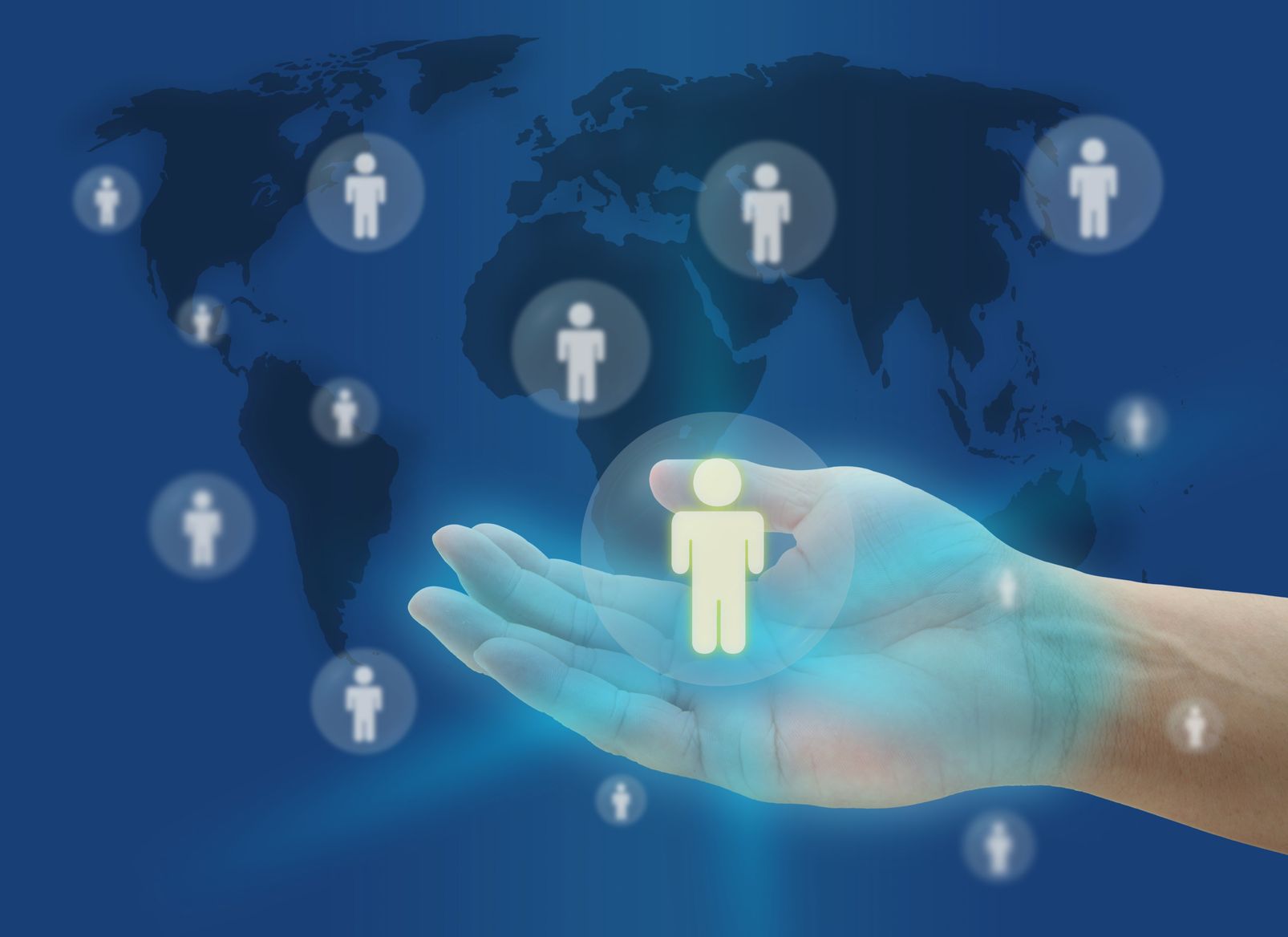How to Win When Labor is Short: Start Recruiting Now to Avoid Farm Labor Shortage…
DÉVELOPPEMENT SOCIAL
60th Commission for Social Development (CSocD60), 7-16 February 2022
The 60th session of the CSocD60 will take place largely online from 7-16 Feb 2022 at the UN HQ in NY. The priority theme is on “Inclusive & resilient recovery from COVID-19 for sustainable livelihoods, well-being & dignity for all”. For info, please visit https://bit.ly/un-csocd60.
Social Enterprises vs. Non-Profits: Understanding The World of Non-Profits
‘Social enterprise’ and ‘non-profit’ are two terms you may be hearing more and more in your day-to-day life. But what exactly are they? How do they differ? Here are their definitions.
How to Build Your Nonprofit Development Team
A nonprofit’s development team carries a lot of weight on its shoulders. Gathering the funds an organization needs to deliver its mission is not easy, so building a high-class team is essential. If you’re thinking about creating your development department, here are a few tips.
The “Must” Qualities of Your Next Development Professional Hire
Whether you’re looking to hire a development director or a development team member, it’s important to recruit a topnotch fundraising professional who can help create, coordinate, and implement opportunities for donors to support your organization. Click here to find out how.
Why Social Capital Might Be the Most Valuable Asset You Aren’t Using?
High social capital is important for any organization that wants to achieve its goals. Read here to know how social capital helps teams function and how you can spot signs of low social capital between your employees.
5 challenges you’ll encounter as a social worker and how to overcome them
The highly sensitive cases that a social worker encounters present some unique challenges. Along with this, there seems to be more pressure on the job than ever before. With the right training, support, and key skills, you can overcome these and learn how rewarding a career in social work can be.
Why companies must prioritize wellness in the workplace
COVID-19 has changed the way businesses operate. There is an urgent need for organizations to explore creative solutions to support the workforce effectively. This includes developing and adopting a framework that is grounded in compassion and holistic wellness.
Advancing Racial Equity in the Workplace
Racial bias in the workplace is costly due to increased absenteeism, productivity lost & turnover. Even employees who don’t directly experience bias are negatively impacted. Ho will organizations restructure their workplaces to truly advance racial equity and inclusion?
Ways To Develop Your Social Skills (and Why It’s Important)
Social skills are beneficial not just to your personal life but also to your professional life. In the workplace, these skills can be an essential aspect of staff interaction, planning and collaboration. In this article, you will learn how to apply social skills in the workplace.
18 women in the workplace statistics you need to know (in 2021)
The pandemic has affected pretty much everything to do with work. Everything is uprooted, and women have been affected in several ways. While many things feel like they’re ‘on hold’, it’s an opportunity to understand what the world of work currently holds for women, and how we can shape it for the better as we aim towards the post-COVID world.
How Can We Best Engage Older Workers in Reskilling Efforts?
The workforce landscape is changing. Across the OECD, the ratio of older people and the working-age is projected to reach 2 in 5 by 2050. To harness this work span and support its transformation, we must create opportunities for age-friendly policies. Read on to know more.
The menopause: its biggest challenges at work and how to support employees
The menopause needs to become an all-inclusive subject of conversation in the workplace. Open channels of communication between men and women of all ages, races and religions, who understand and feel comfortable talking about it, are central to a positive outcome for businesses and their people. Read on to know more.
Make It Safe for Employees to Disclose Their Disabilities
It’s a debilitating circle. Business leaders need to learn more about what they can do to create a more inclusive climate for employees with disabilities in order to take effective action. Read on to know more.
The Power of Multigenerational Teams in the Social Sector
Many experienced professionals want to continue working in the years and even decades that follow the traditional retirement age. They want to stay engaged and productive and, in many cases, need to keep earning income. Many also want to apply their skills to new roles that have greater personal meaning and social impact. Read on to know more.
5 Reasons Social Connections Can Enhance Your Employee Wellness Program
Work relationships are incredibly important to employee well-being. It’s about more than just “getting along” with a co-worker. As humans, we crave contact and connection with other people. Unfortunately, for many employees, work can be a very lonely place. Read on to know more.
International Day of Cooperatives (A/RES/47/90)
This July 3rd, the International Day of Cooperatives (#CoopsDay) will be celebrated as “Rebuild better together”. Cooperatives around the world will showcase how they are meeting the COVID-19 pandemic crisis with solidarity and resilience and offering communities a people-centred and environmentally just recovery. Read on to know more.
Racism in the Workplace: 5 Guidelines for Productive Conversations
In the ongoing Black Lives Matter movement, corporate leaders have an important role to play. Activists are urging workplace professionals to take meaningful steps to establish anti-racist work environments, moving the world closer to real justice and equity. Conversations around racism in the workplace — which can be difficult and sometimes deeply uncomfortable — are a necessary step in driving progress and bringing those goals to fruition. Read on to know more.
4 Ways Employers Can Better Support Their Working Parents
For many of us, the pandemic brought with it a number of changes (and challenges) in the way we work. Notably, working parents probably suffered the most under the weight of additional pressures. Read on to know more.
How HR Dept Can Help Single Parents in the Workforce
Data from the Census Bureau showed that in 2018, there are more than 35 million single-parent households, with the percentage of single moms outweigh the number of single fathers. For example, there were at least 10,000 single moms compared to approximately 2,000 single father in the United States only. Read on to know more.
Autism in the Workplace: How to Accommodate Adults with Autism
People with autism make valuable employees due to their attention to detail, ability to concentrate, and creative thinking skills. They’re excellent in completing tasks and typically stay with a job once they’re hired by a company or an organization. However, some employers are hesitant to hire (or even interview) candidates with autism. Let’s explore why adults with autism find it difficult to land jobs and how employers can support them.
[#WorkTrends] How to Harness the Workplace Power of Introverted People
Many of us might not know that Warren Buffet, Bill Gates, and also Elon Musk consider themselves introverts. Like many other introverted people, they have capitalized on their ability to listen well, stay objective, and find the answers in chaos. Given their unprecedented success, why wouldn’t we want to harness the power and potential of introverts in our workforce? Read on to know more.
The Importance of Addressing Social Issues in the Workplace
Culture is something we talk about a lot, but in moments like these, how an organization handles it can actually be a big factor in employee satisfaction and define what the organization’s culture is. Click here to know more.
The New Role of Social Workers in Strengthening Employee Engagement
Organizations looking to improve company cultures have turned to HR leaders to drive initiatives that promote wellness and social consciousness. Read on to know more.
A New LGBTQ Workforce Has Arrived—Inclusive Cultures Must Follow
Today’s LGBTQ workforce has undergone a fundamental, generational shift, both in how it defines itself and what it expects of workplace inclusion. Read on to know more.
Building A Better Future: How Gender Research Supports Rural Women During Times Of Crisis
The ongoing pandemic has wreaked havoc on institutions, systems, communities, and individuals. As an effect, we are now seeing structural inequalities, including gender disparities. This dichotomy, one where women are essential for combatting system shocks while simultaneously underrepresented in decision-making spaces, illustrates why gender research, especially research that aims to understand women’s roles as active agents of change, is essential.
5 Must-Have Humanitarian Apps
In today’s digital age, it’s no wonder that there’s a transition of humanitarian workers relying on pencil and paper, to more accurate and speedier digital means of carrying out their work. Here are 5 must-have apps that humanitarian aid workers should have on their mobile phones.
Covid-19 | Worsening inequality in the developing world: why we should say no to a ‘new normal’
COVID-19 pandemic is now popularly referred to as the ‘pandemic of inequality’. it has exposed existing inequalities and has given rise to new inequalities. According to United Nations Secretary-General Antonio Guterres, COVID-19 has highlighted growing inequalities. It has exposed the myth that everyone is in same boat, when the truth is, we all are floating in same sea; some are in superyachts, while others are clinging to drifting debris.
Older Women and Men as Providers and Recipients of Unpaid Care Work in the Asia-Pacific Region
Based on one of the conclusions from a social development policy paper by UNESCAP, older men and women are net producers of care, which means they produce more unpaid care work that they consume. The paper further provides a policy agenda to recognize and value unpaid care work and provides policy examples from the Asia-Pacific region and other countries in the world. Click on this link to know more.
Transforming power to put women at the heart of peacebuilding
Women’s Role in Peacebuilding: What needs to happen to ‘transform power’ to women and communities most affected by crises and conflict so that they shape the decisions that affect their lives? What would a feminist peace and security agenda look like? The essays illustrate how transformative change rarely comes from within the system; rather, it often comes from outside.
International Translation Day
International Translation Day is meant as an opportunity to pay tribute to the work of language professionals, which plays an important role in bringing nations together, facilitating dialogue, understanding and cooperation, contributing to development and strengthening world peace and security. Thus, on 24 May 2017, the General Assembly adopted resolution 71/288 on the role of language professionals in connecting nations and fostering peace, understanding and development, and declared 30 September as International Translation Day.
A New Way for Nonprofits to Connect With Donors and Raise Money
Every nonprofit professional knows that an engaged donor is a happy and generous donor. Mercedes Kirkland Doyle, the founder of The Good News Community Kitchen, found a new way for nonprofits to connect and raise money – through personal video messages! Click here to know how personal video messages make a difference in honor engagement.
Measuring poverty and inequality: how to get it right
Measuring Poverty and Inequality: Trends in poverty and inequality are used to track progress in development within and across countries. Find out how these trends help in understanding how inclusive the potential national growth strategies are and how it implicates well-being beyond health and mortality.
Making sense of why spouses disagree in household surveys
With women’s empowerment an increasingly active area for study, the stockpile of gender-disaggregated survey data has dramatically expanded. Based on these data, a growing body of literature has found that men and women often disagree when asked the same questions. But what do these disagreements actually tell us about gender and household behavior? Click here to find out.
Economic fallout from COVID-19 tightens its grip on children
It’s predicted that the recession that follows COVID-19 will be the worst global crisis since the Second World War. According to new projections from UNICEF and Save the Children, up to 106 million more children could live in poor households by the end of the year as a result. Read on to learn how economic fallout from COVID-19 tightens its grip on children.
7 Self-Care Tips for Nonprofit Professionals
7 Self-Care Tips for Nonprofit Professionals: Even before the pandemic, nonprofit professionals take self-care as a low priority. Now that we are likely to work remotely for some time, how can we take good care of our physical and mental health to survive? Click here to find out.
For migrants and refugees, a sad start can have a happy ending – and it should
Latin America has experienced the most significant human mobility crisis in the region’s history since 2015. For example, over 5 million Venezuelans have left their homes over the last five years, the majority of whom have settled elsewhere in the region. Sadly, Latin Americans suffer discrimination and have experience prejudice at work due to their nationality. How can governments provide an optimal experience for migrants and refugees? How important is it to recognize the challenges that migrants and refugees face when in transit as well as after they arrive in their destination country? Click here to find out more.
How to be relevant now (and what not to say)
Nonprofit communicators are so anxious now about sending their organization’s message across, from what to say, to how often, and where to say it. How can they effectively communicate their message? How can nonprofits tweak their messages to increase the organization’s relevance? Click here to find out more.
How Covid-19 is changing the world’s children
According to UNESCO, nearly 1.6 billion pupils in 190 countries have been affected and that’s 90% of the world’s school-age children. Our children are currently facing a crisis from their academic success to their social skills and mental health. When today’s children and adolescents grow up, will they see themselves as a “lost generation”, whose lives will forever fall in the shadow of a global pandemic?
Good News and Inspiring Stories From the Pandemic to Lift Your Spirits
The internet has become a scary place these days. Social media is no longer a friendly escape to catch up with your friends and loved ones since it’s often filled with alarming posts regarding the pandemic. Here are some stories that will inspire you and lift your spirits.
COVID impact: GenZ versus Millennials
Things have changed overnight when countries declared a national emergency due to COVID-19. Prosper Insights & Analytics conducted a survey in April to over 8,200 consumers about how GenZs and Millennials are being impacted by the pandemic. See what their insights are by clicking here.
How Fundraisers Can Manage Their Emotions During Covid-19
Fundraisers can get easily overwhelmed by the enormity of Covid-19. Organizations have to rethink their campaigns and programs while dealing with the limitations caused by the pandemic. Furthermore, donors are starting to lose income and struggle with the loss of family or friends who succumbed to the virus. Find out how fundraisers can manage their emotions during COVID-19.
Remote Meetings 101: Everything You Need to Know
Did you know that remote workers attend more meetings each week than on-site workers? According to a 2019 State of Remote Work report, 14% of remote workers are dedicating time to more than 10 meetings per week. Although it takes up some of their time in a workday, meetings are important because it’s a great way to build relationships and facilitate team bonding. Curious to know how to make the most of the client’s time and ensure they have the best meeting experience? Here’s everything you need to know.
How to collaborate effectively with remote colleagues
Establishing trust is the core of remote collaboration. Based on a 2017 study, a staggering amount of remote workers feel ignored and out of place. To avoid any of this from happening, here are some of the best practices that you can adopt.
How to Help Others During the Coronavirus Outbreak
For the past few weeks, governments around the world are adopting drastic preventive measures, including social-distancing, to lessen the rapid transmission of COVID-19. While it is easy to stay at home during this unprecedented situation, there are some ways we can do to help others during this challenging time.
Find out why employing people with disabilities makes good business sense for private companies
According to ILO, there are over 1 billion people with disabilities globally who are more active in the society than ever. Yet, employment rates are low and barriers still exist at work. Why should we employ people with disabilities and how can we help promote inclusion? Let’s find out.
How Companies, Governments, and Nonprofits Can Create Social Change Together
More than 80% of millennials said that making a difference in society is more important than professional gain. Customers are now preferring products and services with social causes. Corporations are starting to pay attention to their social responsibility practices. But the question remains. How can companies, governments, and nonprofits create social change together? Can leaders accomplish their business goals while supporting society’s goals? Read to learn more.
Human Resource Management in Nonprofit Organizations
HRM’s main task is securing the availability of HR quantitatively and ensuring that the workforce is of desired quality level appropriate to costs. Since NPOs depend on human performance to fulfill their quality expectations and to reach an acceptable level of costs, how can HRM, which was initially conceptualized for business, be transferred to NPOs?



